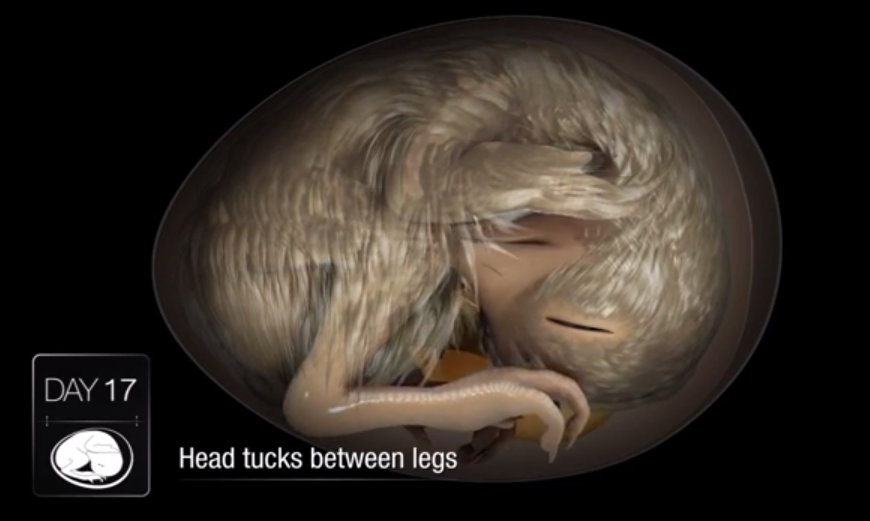The Poultry CRC is very proud to announce the release of our latest educational resource; an animation detailing the 21-day development of a chick embryo within the egg. This two minute long simulation has been made freely available on YouTube for anyone who wishes to observe this process, and will be especially useful for educators around the world for years to come.
The animation, which is both scientifically accurate and visually beautiful addresses a number of areas in Australia’s national science curriculum. For younger children, it can be used when teaching life cycles; early high school students can reference it when studying microscopic and atomic structures; and for older students it is relevant as part of the study of the basic units of living things. Senior high school students who study biology also study comparative embryology, which includes a comparison of embryos of vertibrates and this short animation will be a useful aid here.
A strong emphasis was placed on making sure that the animation was scientifically accurate, and a detailed research phase was undertaken before production began to ensure that the essential salient features were included.
“It was quite a hard task” said Liz Roan, CRC’s Education Manager. “We wanted to include enough detail to make the animation useful at Senior High and Undergrad level, while not making it so technical that it would overwhelm the younger age groups. Luckily, the team at AXS, who all hold degrees in Biomedical Communication, as well as backgrounds involving developmental biology, physiology and anatomy, were completely up to the task. They were very thorough with their research, cross checking details and referring any ambiguities back to us for our academics to resolve. We’ve ended up with a product that is everything we wanted; clear, detailed, accurate and interesting.”
With many thanks to digital animator’s AXS studio in Toronto, Canada, the Poultry CRC’s dream of an accurate and elegant-looking animation has been bought to life.
“We’re hoping that not only will it have a place in school education, but that commercial operations such as hatcheries may find it useful as well” said Liz.
The CRC encourages open sharing of this resource. Enjoy!


